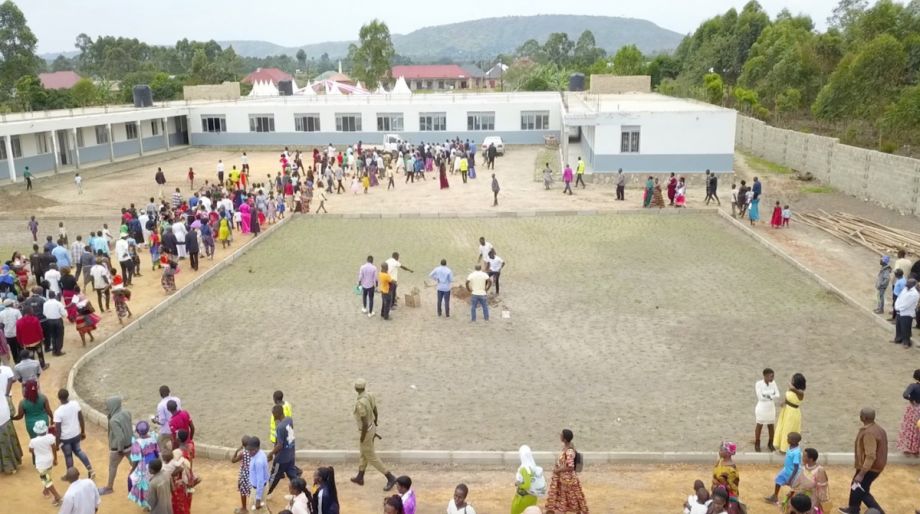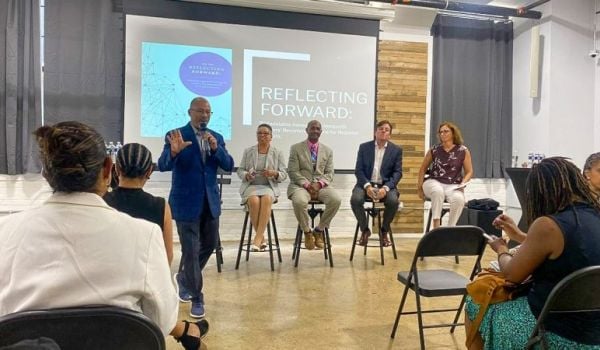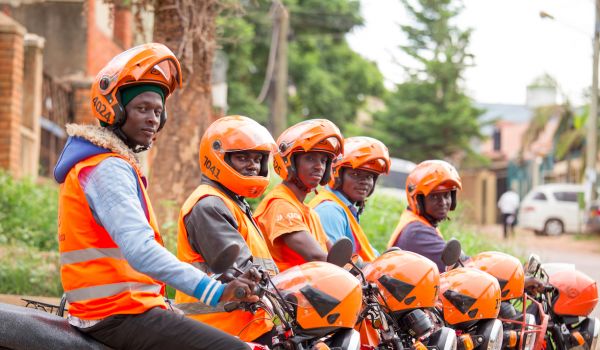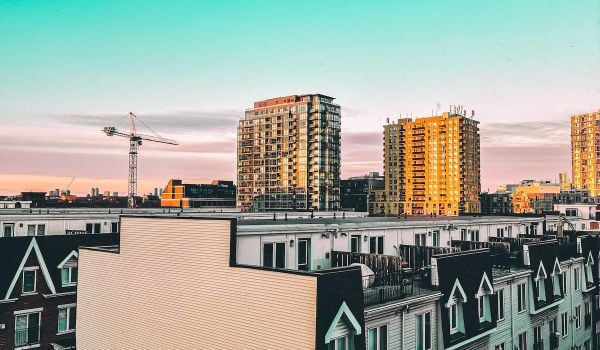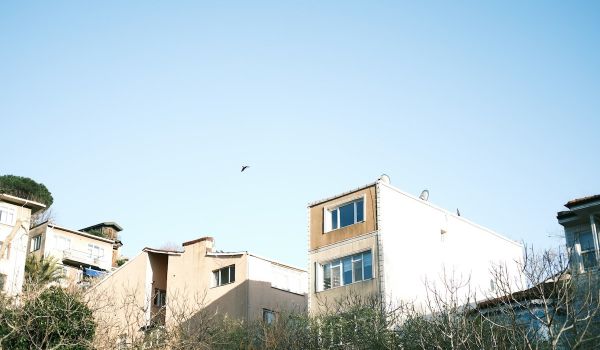Through local control and guidance, a project that has been years in the making came to fruition last February in a small, rural town in Uganda.
The Tat Sat Community Academy opened to much fanfare one year ago in Uganda’s Kyotera district. The academy includes a secondary school, a savings and credit cooperative organization, and the Institute of Indigenous Cultures and Performing Arts. The community has also built and is operating a maize mill for local farmers as well as a medical facility to serve students and the community at large, which will begin operations this year.
While The InteRoots Initiative, the Denver-based nonprofit that I co-founded with Ronald Kibirige, has acted as a partner and financial support mechanism for the project, the academy has been fully conceived, built and managed by the community members themselves.
That’s because we believe – and we have seen again and again – that local control, guidance and input are essential for community projects to have generational impact.
Regardless of where a project is taking place, it is not enough to simply ask local community members what they think of a project and make efforts to integrate feedback. It’s paramount that communities lead efforts from conception to implementation and analysis. Only when a community has ownership of a project, both perceived and material, will it inspire buy-in from its members.
Key to this process is creating space through which ideas and solutions are generated by a community and its collective knowledge and capacity. This is why we work with communities on ground-level projects to leverage community capacity as a way to catalyze change. We believe the people who have the best pulse on a community’s needs are those who are living within it.
In the case of the Tat Sat Community Academy, InteRoots was approached by the community after a series of informal conversations with our co-founder Ronald Kibirige, who is from a nearby municipality. As with all InteRoots projects, representation on our board of directors is necessary to ensure community leadership on all levels of a project. The community subsequently opted to create a community board to oversee and manage the project. The board is made up of elected residents of the Kasasa village; together, they make strategic decisions using results, experience, and the ideas generated by their neighbors.
The board decided that the school would support up to 500 students, some boarded and some who travel to the school daily for education. Tuition is up to 60% less than similar schools (as determined by the community board), and opportunities are abundant for graduates and their families due to financial incentives. Financial services and education are also provided through the credit cooperative, and students and their families also benefit from income generated from collective investments in the local economy.
“Since my mum is a farmer, she can bring maize to the maize mill for milling and produce flour to sell to the school, which pays for my school fees for me and my siblings,” a Senior 1 student shared with us in a recent interview. “This makes TaSCA amazing and unique from other schools.”
These factors, paired with an integration of indigenous knowledge into the curriculum, have created an ecosystem that will be self-sustaining financially and culturally by the end of this year.
David Luyima, a member of the TaSCA Kasasa Community Board characterizes the project as an investment in the future of the entire community. “Bear in mind that this project is looking at many items: culture, educational empowerment, economic empowerment,” he explains.
“We have a lot of challenges insofar as education is concerned…but keeping informed citizens is a challenge. We realize that for our children in the village now, it is still difficult for them to obtain lessons just because of technology, for example. So we are very focused, just waiting to see the future of this project because it is aiming at solving most of these [issues].”
Just one year in, we’ve witnessed success. Not only is the school seeing the successful completion of its first year of classes for students as well as the operation of a credit cooperative and maize mill, butKasasa residents took their vision one step further, opening up a health care clinic not only for students but for the wider community. The clinic isn’t only a place for sick students to stay. It provides a student counseling program, educational opportunities for students interested in a medical career, and provides affordable medical services to the community.
These life-affirming opportunities are what Kasasa has decided it needs, and the entire community has put time, effort and resources behind the effort.
Nonprofits working around the world, whether operating in their local communities in the U.S. or beyond, will look to the residents of Kasasa as an example of how there is enormous potential in putting the community first when cultivating ideas and strategizing for future projects.
This model has already seen outstanding results in the community, and each day new ideas come to the forefront. Communities already have the answers for what they need. We just need to listen and follow their lead.
M. Scott Frank is the co-founder and executive director of The InteRoots Initiative, a Denver-based nonprofit working with communities on sustainable projects created by local communities.

